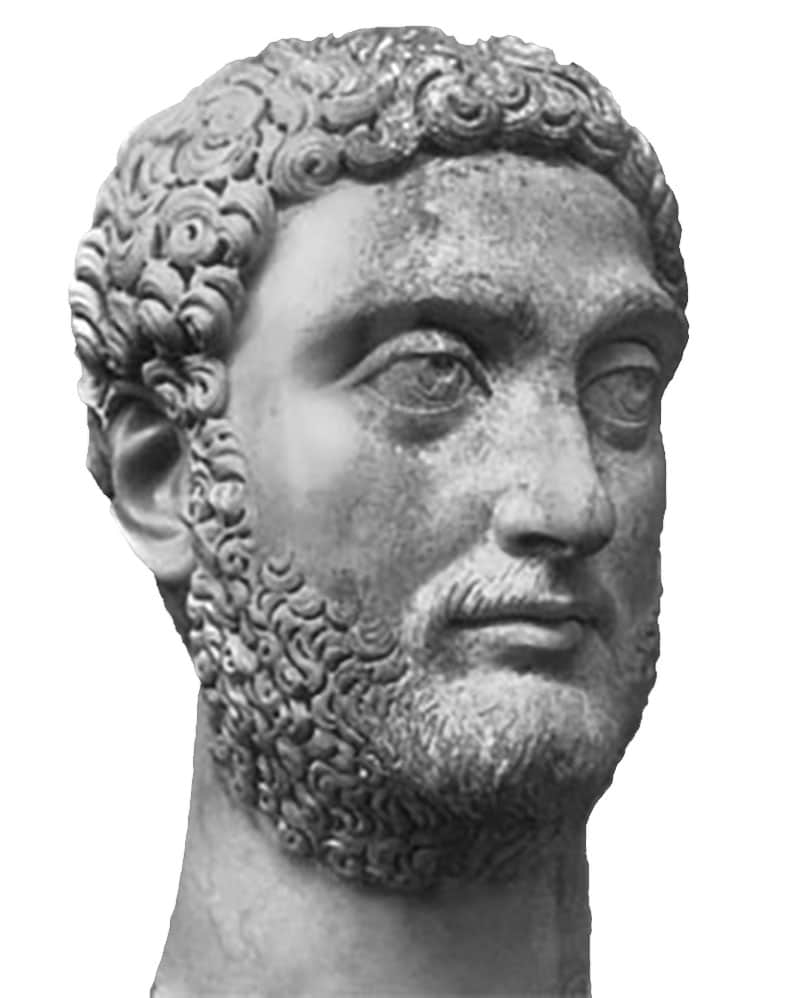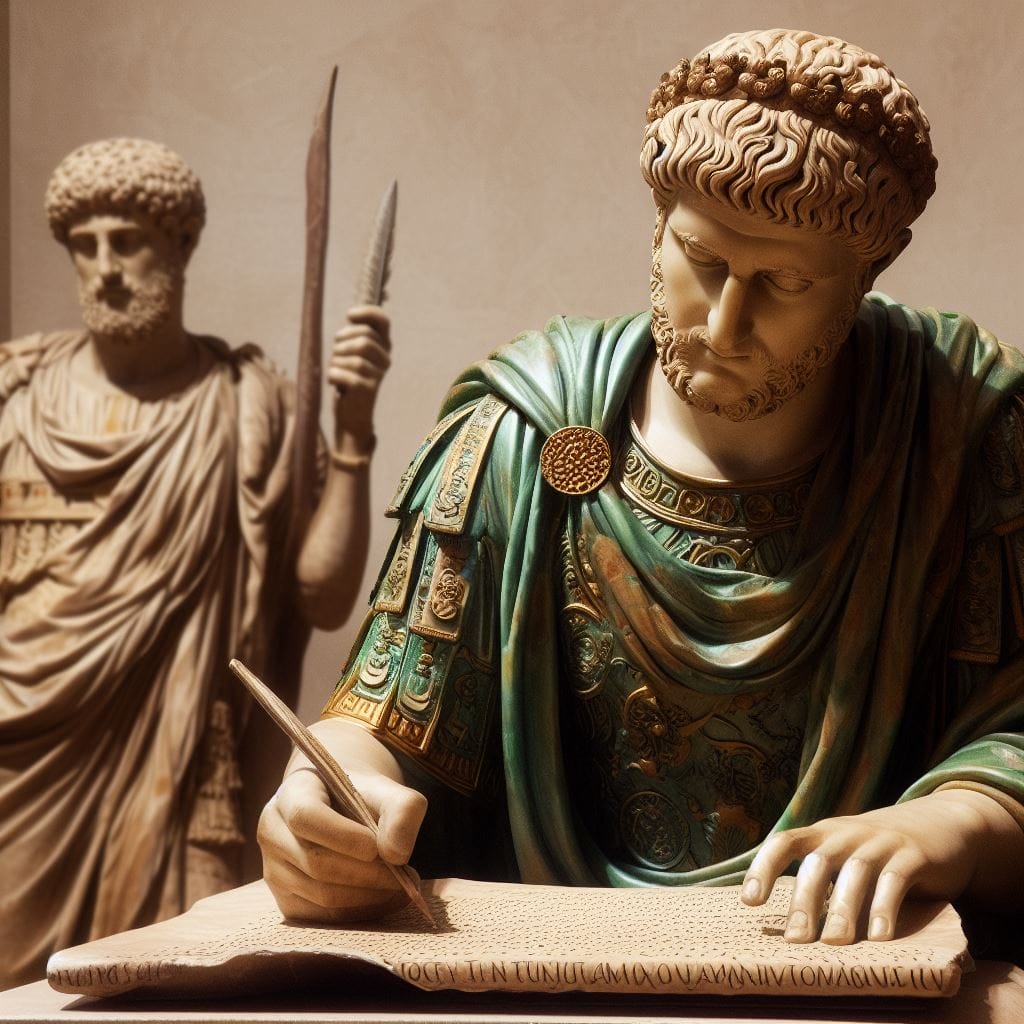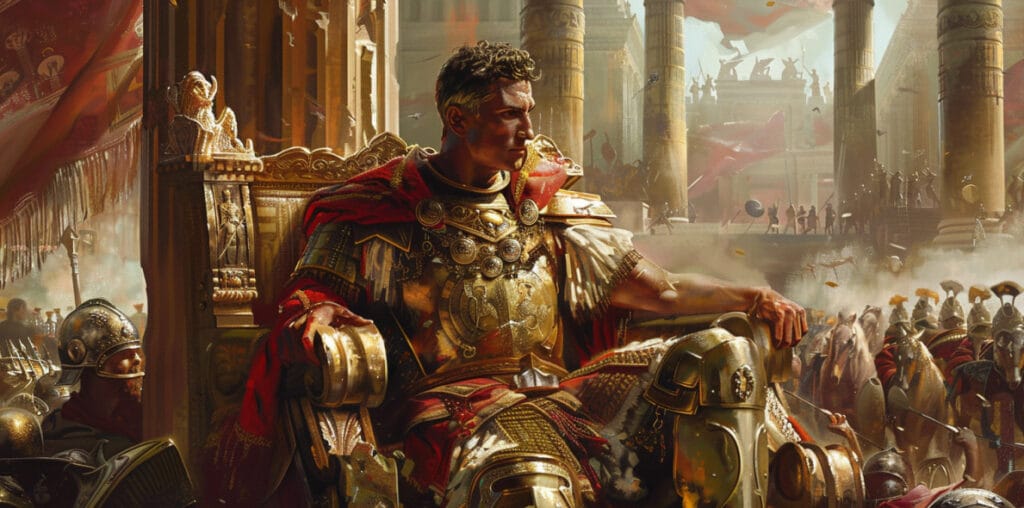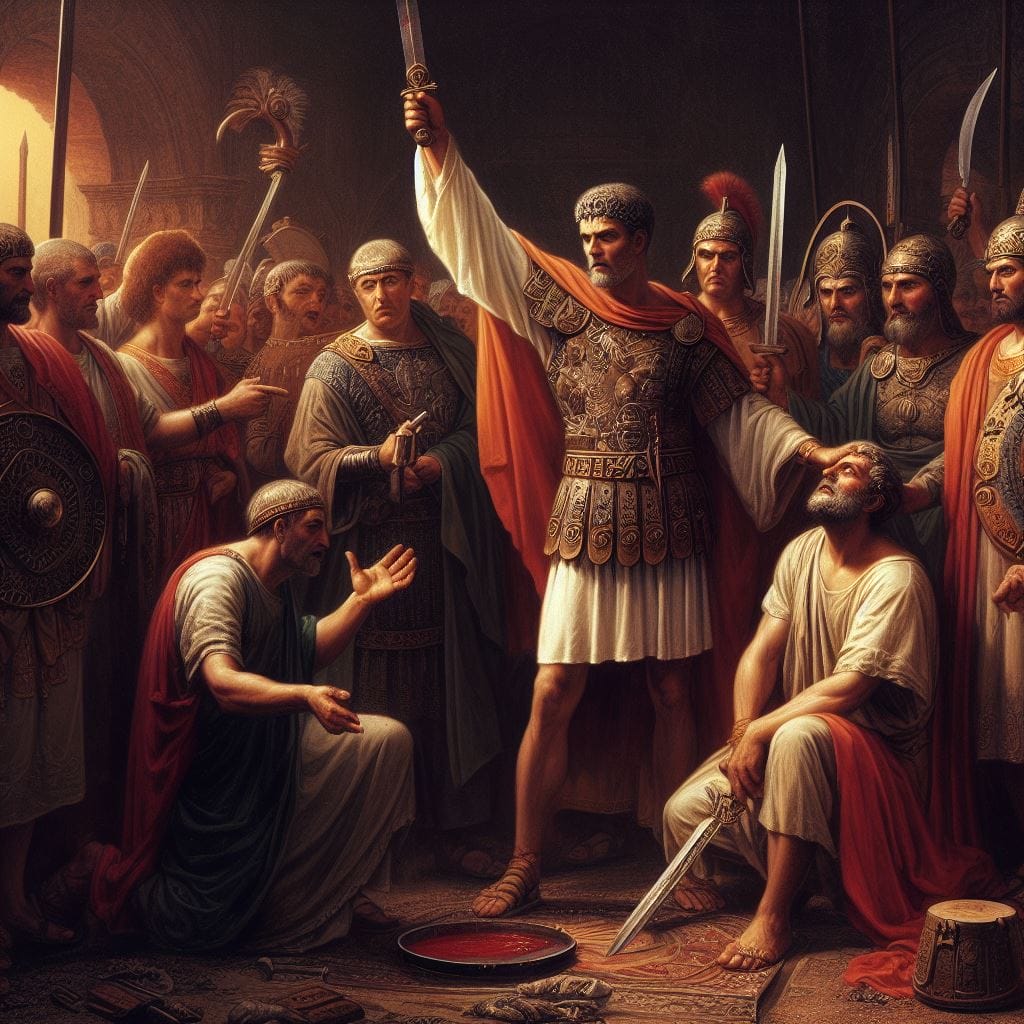Life: AD c. 253 – 284

- Name: Marcus Aurelius Numerius Numerianus
- Born AD ca. 253.
- Became emperor in the spring of AD 283.
- Died near Nicomedia on November 284. AD
Early Life
Marcus Aurelius Numerius Numerianus was the younger son of the later Emperor Carus, born in about AD 253. Numerian and his elder brother Carinus were raised to the rank of Caesar in AD 282, soon after their father became emperor.
In AD 282, he accompanied his father to the Danube to defeat the Sarmatians and the Quadi. Then, in December AD 282 or January AD 283, Carus took Numerian with him on his expedition against the Persians to re-conquer Mesopotamia. Meanwhile, Carinus stayed in Rome to rule the west.
Becoming an Emperor
When Carus died, Numerian succeeded him, thereby becoming joint emperor with his brother Carinus, who had been granted the rank of Augustus shortly before Carus’ death. At first, immediately after his father’s death, he sought to continue the Persian campaign.
Apparently, this was much favored by Arrius Aper, the prefect of the praetorians and suspect in Carus’ death. Conditions for war were favorable. The Persian side was still thought to be weak. But Numerian’s initial efforts were not followed by success.

Numerian was, to all effect, appeared more of an intellectual than a man of war. He wrote poetry, some of which won him critical acclaim in his day. This lack of ruthless military talent might well have been the reason why Carinus alone had been promoted to Augustus, while on the other hand, Numerian remained Caesar (junior emperor). And so, after these initial setbacks, he decided it was unwise to continue the war.
Coming back to Rome

He sought instead to return to Rome, and the army was not displeased to pull back into Syria, where it spent the winter of AD 283. Afterward, the army set out on its march back west through Asia Minor (Turkey). Numerian fell ill near Nicomedia, suffering from an eye disease, which he might have caught while still on campaign in Mesopotamia with his father. The illness was explained with severe exhaustion (Today, it is believed this was a serious eye infection). This left him partly blind, and he had to be carried in a litter.
Somewhere at this time, it is believed Arrius Aper, Numerian’s own father-in-law, had him killed. It’s widely believed that Aper hoped that it would be assumed that he had simply succumbed to his illness and that he, the praetorian prefect, would succeed to the throne in his place. But why he should have kept up the charade that Numerian was still alive remains a mystery. Perhaps he was waiting for the right moment.
For several days, his death went unnoticed, the litter being carried along as usual. Soldiers inquired about their emperor’s health and were reassured by Aper that all was well and that Numerian simply was too ill to appear in public. Eventually, though, the stench of the corpse became too much. His death was revealed, and the soldiers realized that Rome had lost yet another emperor (AD 284).
The Rise of Diocletian
Had it been Aper who hoped to fill the vacancy, then it was Diocletian (still known as Diocles at the time), commander of the imperial bodyguard, who emerged the victor. It was Diocletian who was made emperor by the troops after Numerian’s death. It was he who sentenced Aper to death and even executed the sentence himself. Therefore, it was he who benefited most from the deaths of Carus and Numerian. In his role as bodyguard, he held a key position, enabling him to prevent or enable any action against the emperor. Hence, it is unlikely that Diocletian did not have anything to do with the murder of Numerian.

People Also Ask:
What did Numerian do?
Numerian, (died 284), Roman emperor 283–284. He succeeded his father, Carus, in the summer of 283, in the midst of a war with the Sāsānians. He was emperor in the East, and his brother, Carinus, ruled the West. Numerian led the army home but contracted a disabling eye disease.
What did Romans call the emperor?
Often, when a given Roman is described as becoming emperor in English, it reflects his taking of the title Augustus and later Basileus. Another title often used was imperator, originally a military honorific, and caesar, originally a surname.
Where is Numerian from?
Definition: Numerian (Latin: Marcus Aurelius Numerius Numerianus; died November 284) was Roman emperor from 283 to 284 with his older brother Carinus. They were sons of Carus, a general raised to the office of praetorian prefect under Emperor Probus in 282.
Who was the last Roman emperor?
Romulus Augustus is typically regarded as the last Western Roman emperor, or even the last Roman emperor overall, with his deposition seen as marking the end of the Western Roman Empire as a political entity.
Which emperor was the most successful?
Gaius Octavius Thurinus, also known as Octavian or “Augustus,” served as the first official emperor of the Roman Empire and is often seen by historians as the greatest.

Historian Franco Cavazzi dedicated hundreds of hours of his life to creating this website, roman-empire.net as a trove of educational material on this fascinating period of history. His work has been cited in a number of textbooks on the Roman Empire and mentioned on numerous publications such as the New York Times, PBS, The Guardian, and many more.
